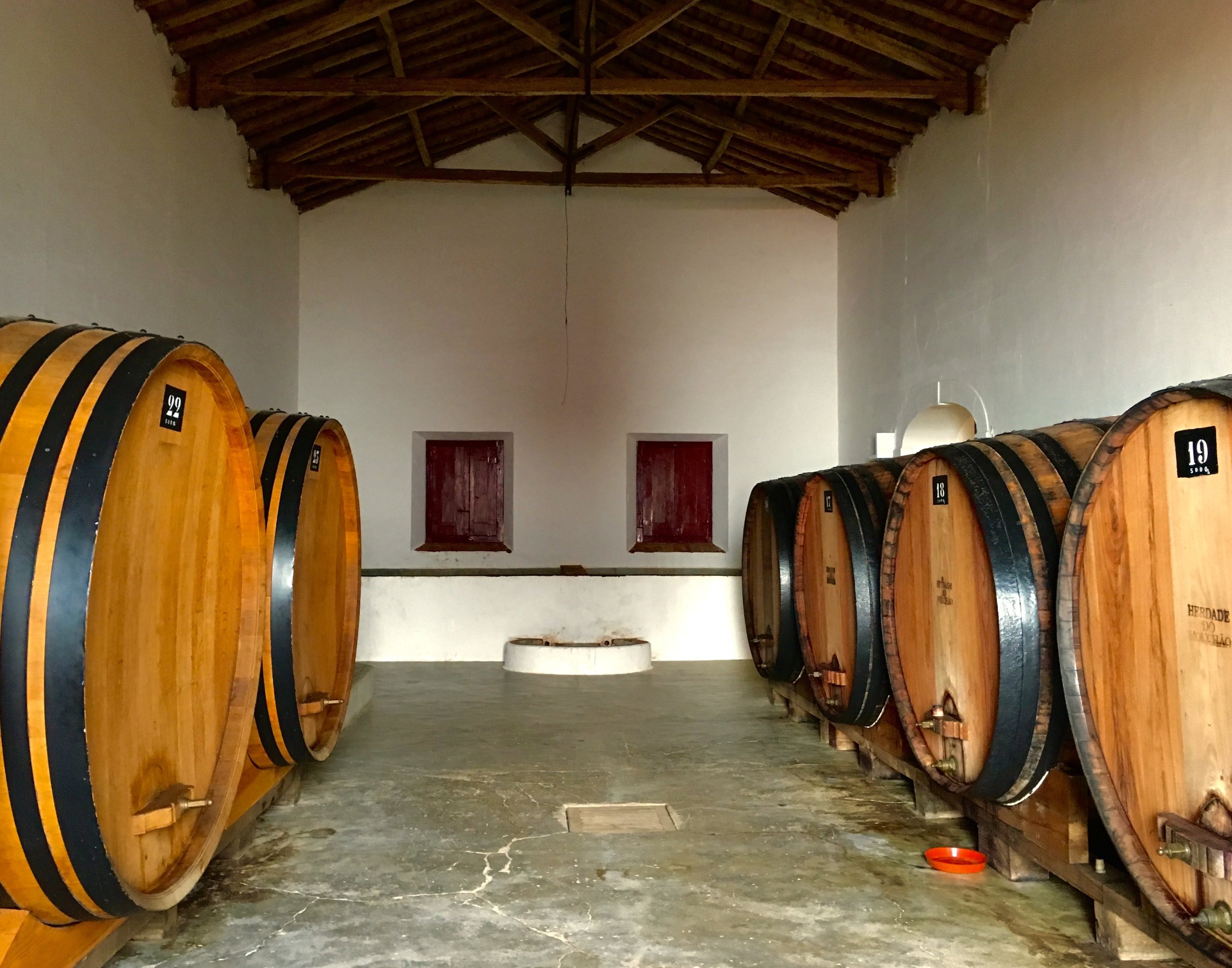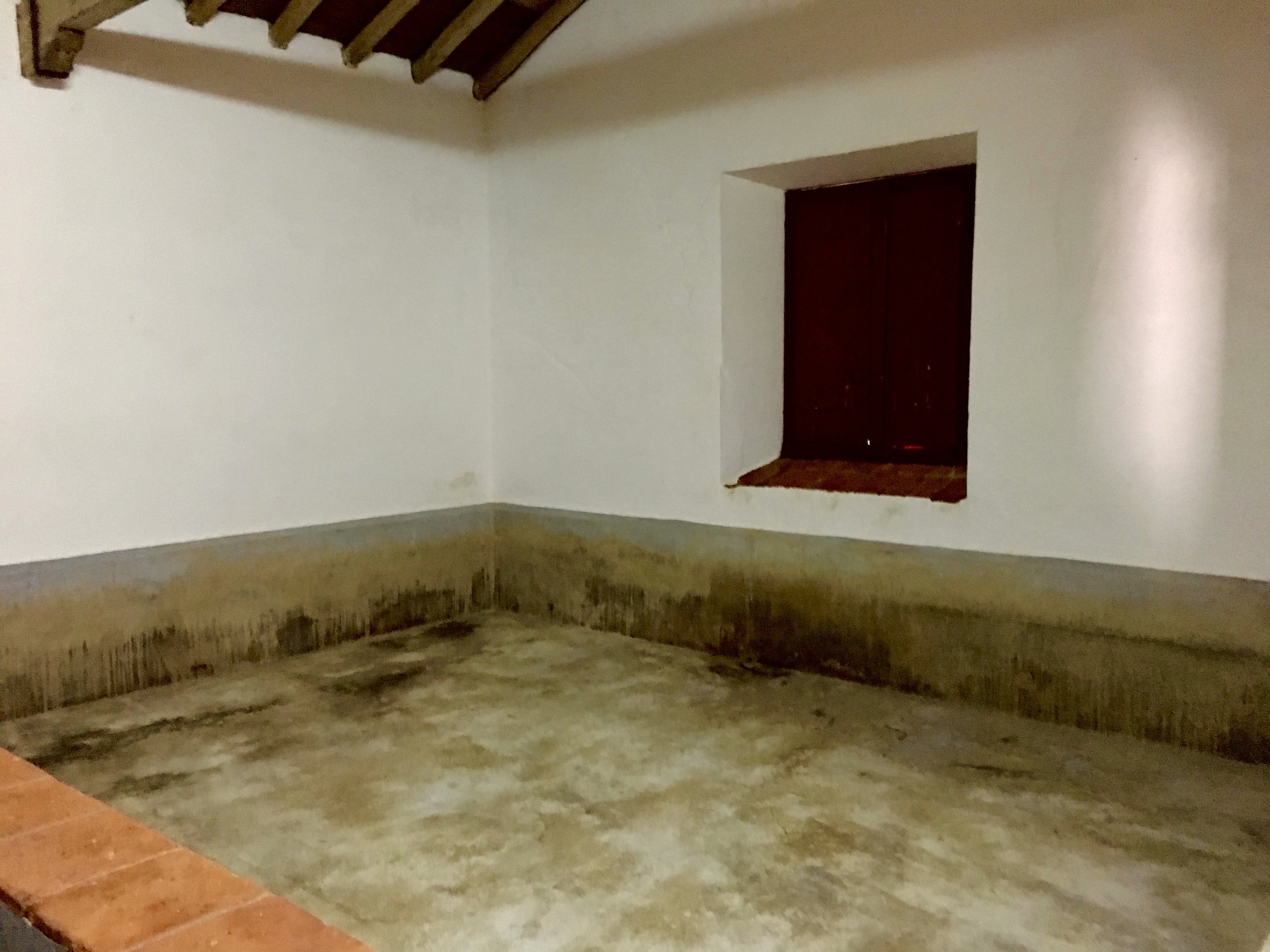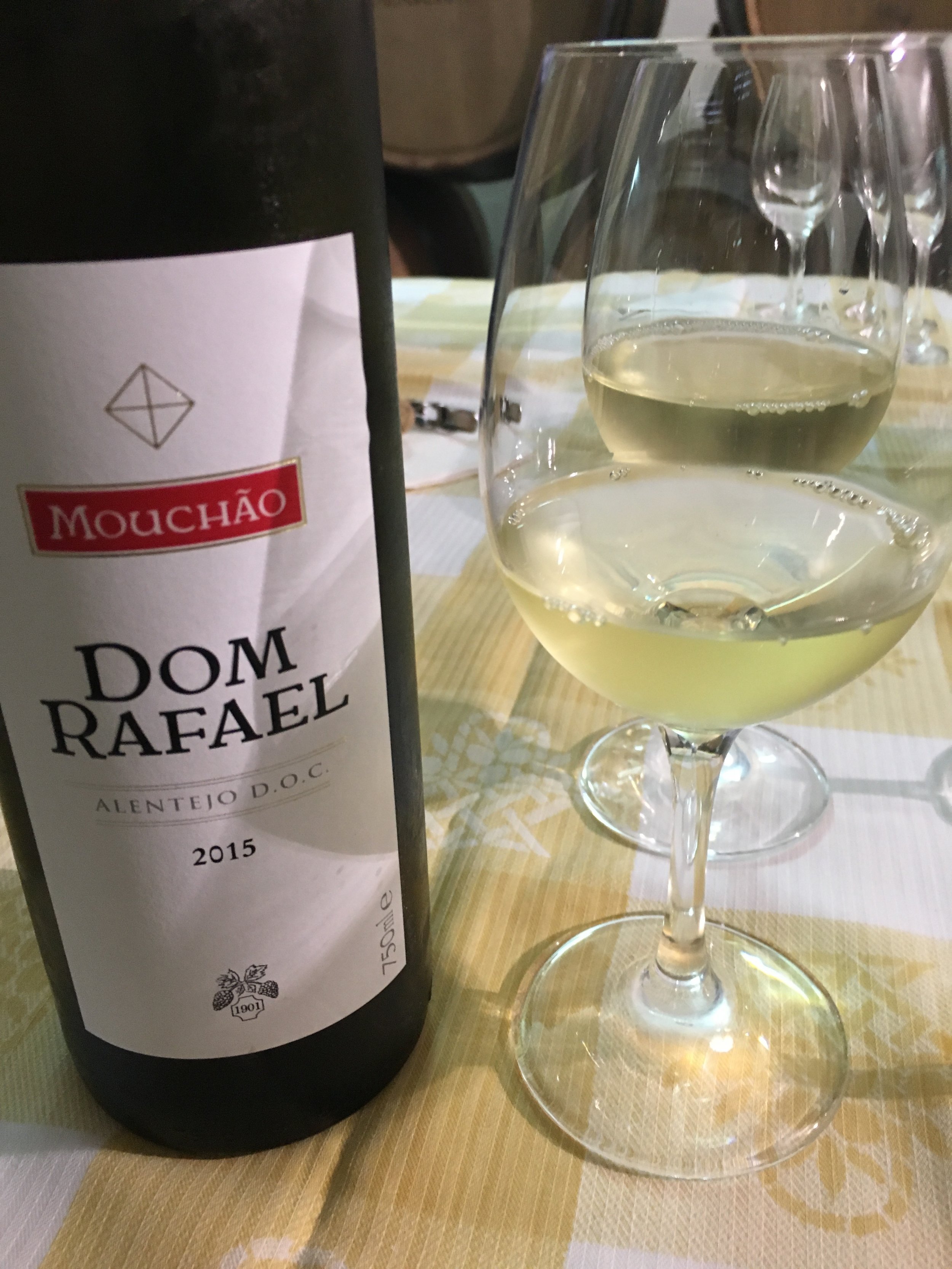Wine: The oldest winery in the Alentejo, Mouchão is as traditional as it gets, down to being run by the same family since its founding as a winery in 1901. The Reynolds family came to Alentejo to get into the cork business, then moved to olive growing/pressing (which they still do) and finally to wine making. There are stunning cork oak trees in the middle of the vineyards, from which cork is harvested every 9 years.
They produce 6 still wines, 2 fortified and 2 brandies and are famous for their namesake wine made from alicante bouschet, a grape that is a cross between petit bouschet and grenache. Alicante bouschet, though cultivated in France, thrives in the clay soils of Mouchão and in the arid climate of the Alentejo to produce rich, lush, fruity wines with a tannic edge from the grape's thick skins.
All wines are hand-harvested. For their reds, they do not de-stem. The grapes are transferred to indoor "lagares," large square pits usually made of cement, but at Mouchão it's marble since there are quarries right down the road in Estremoz. In the lagares, the grapes are foot-trodden for about a week during maceration and fermentation. Grapes are then pressed in the original 1901 presses! For the whites, they de-stem and then ferment at low temps in stainless steel to preserve freshness and aromas, a key step since it is very hot in Alentejo (temps can exceed 100 F for weeks on end during the summer).
Tasting of 5 wines : 1. Dom Rafael 2015 Branco blend of antão vaz, arinto, perrum & fernão pires (citrus, tropical, light & fresh). 2. Dom Rafael 2013 Tinto blend of alicante bouschet, trincadeira & aragonez (damson plum jam, wood spice). 3. Ponte das Canas 2012 Tinto blend of alicante bouschet, touriga nacional, touriga franca & shiraz (black fruits, dark chocolate, subtle cigar box). 4. Mouchão 2011 (ripe blackberry, herbs de provence, tobacco, meaty). 5. Vinho Licoroso 2011 (only alicante bouschet - like a spicy port!).
My take: A visit to this estate combines everything I love about wine: Fascinating history, geology lesson, climate issues, cool people, a beautiful setting and great wine that is "of a place." In the cellar, you can see a barrel marked "cooprativa" from when the winery was taken over and converted to a collective farm by the new government after the 1974 leftist military coup (25th of April / Carnation Revolution). The property was finally returned to the Reynolds/Richardsons many years later. Simply wonderful! More about Herdade do Mouchão.




















